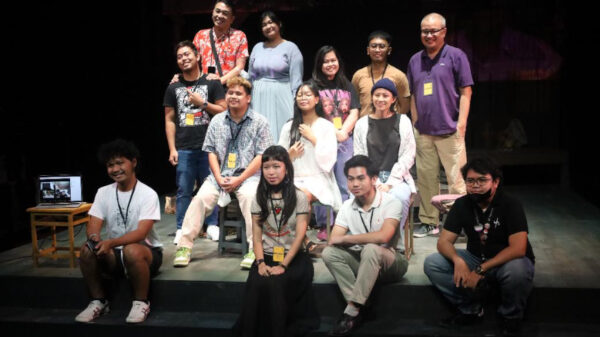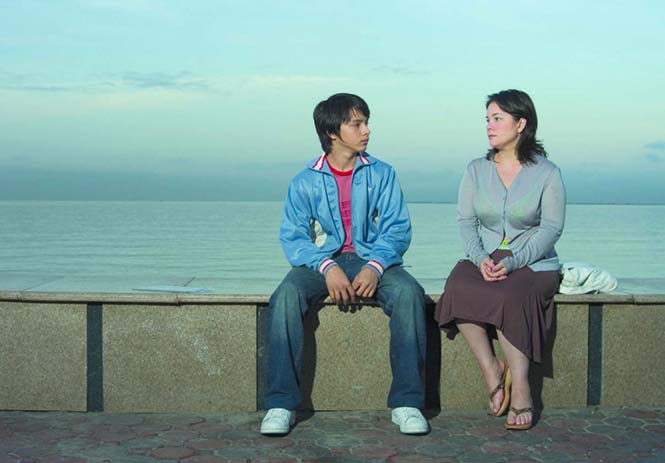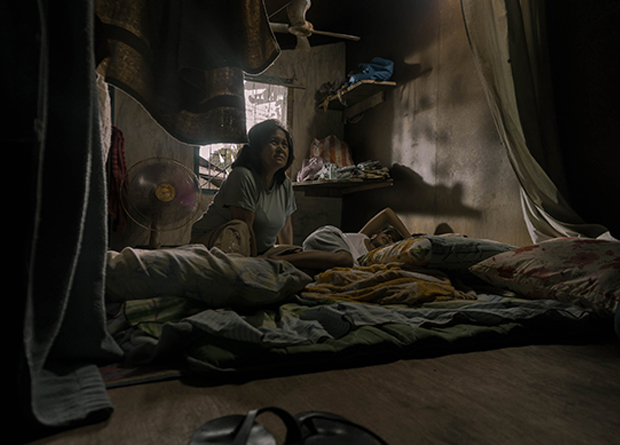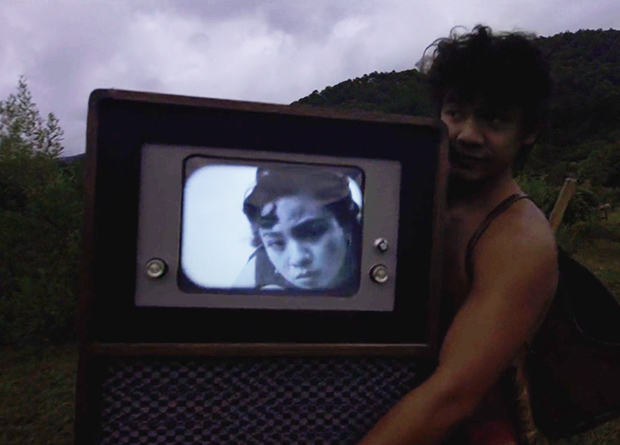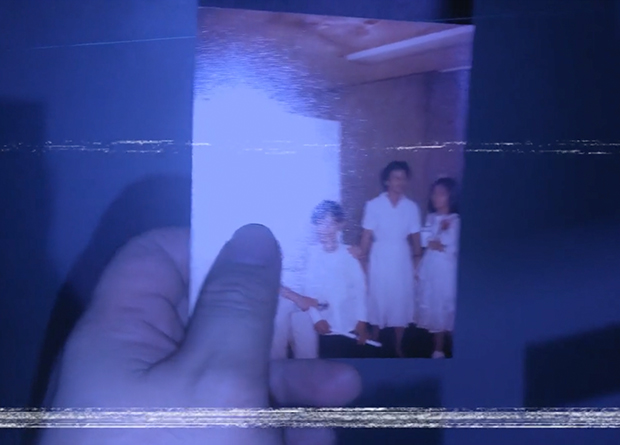Interviewed before the gala of his film Iska in Cinemalaya 2019, Theodore Boborol told me that the idea behind the film took roots when he spoke with a househelper one time. She just cried, he said, and then told me her story about looking after a special child (without even knowing what troubled the child, e.g. autism). For Boborol, it was eye-opening because, while he has been telling stories for a long time, he was dumbfounded to discover that a story was right under his nose (or more aptly, right under his roof).
And so the screenplay by Mary Rose Colindres was made, eventually turned into this flick by Boborol.
At the end of the film, though – and no matter how I tried to appreciate the film – it felt, to me, not a film about Iska, but more like an atonement from Boborol, an attempt to seek for our absolution because he failed to notice/help the Iska in his life. And this didn’t sit well with me – i.e. this use of Iska’s story as an attempt to create a name for himself as a director to pay attention to…
WHAT IT’S ABOUT
Iska tells the story of, well, Iska (Ruby Ruiz), an elderly woman whose only daughter left her son (who has autism) to just disappear from their lives. We get to see how Iska has to juggle jobs to make ends meet, deal with a philandering husband, losing her grandson, and then still be judged by a society that doesn’t understand what people like her go through.
WHY WATCH IT
Here’s the deal: You will, perhaps, appreciate the film more if unlike me, you didn’t interview the director and hear the (sob) story about failing-to-notice-someone-in-need so I-used-her-story-to-launch-a-directorial-debut.
Because despite this (okay, fine!) harsh observation, the film has its charms.
There’s the story, to start, which remains hardly tackled in mainstream cinema (perhaps particularly locally).
Differently-abled people are hardly ever properly depicted in local films – e.g. Ipagpatawad mo (with Terence Baylon playing Junjun, Vilma Santos’ son with autism) and Tanging Ina (where Ai-ai delas Alas poked fun at deafness via this subtle insult of them via her son not being able to hear). So for an attempt to talk about this issue should be given credit.
There’s the use of non-celeb celebs.
Particularly had she been well utilized, Ruiz is an inspired choice to be the star for this film, not just because she can act, but also because she’s not exactly a household name. This approach makes the film more believable because we can see someone like her actually in the context created by the film.
Overall look – at least mostly.
For instance, that the director wants us to “feel”, not just “see”, how frenetic the life of Iska (and perhaps even of those with autism) is commendable. Pay attention to the changes in camera handling that are at times noteworthy, and at other times… vomit-inducing (literally). It gets tedious in the long run, but the attempt is worth mentioning.
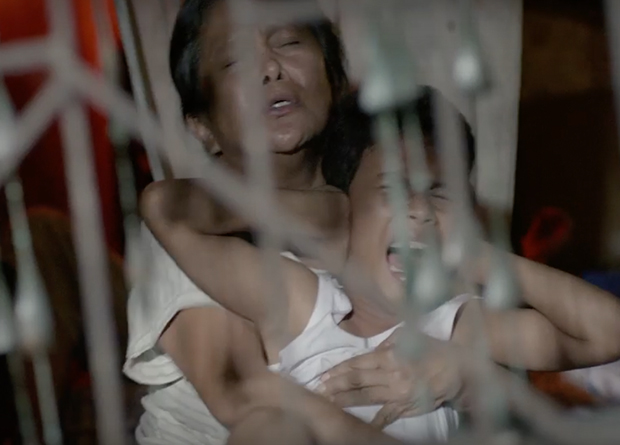
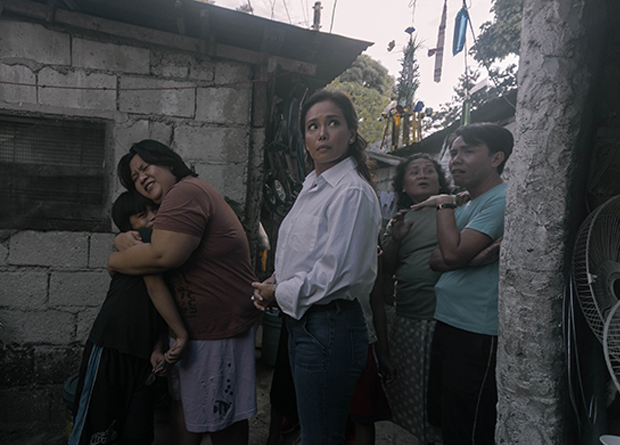

WHY AVOID IT
As one of the films with a quite-interesting story to tell (and not banking on the names of extremely well-established actors to do this), this film ought to pick people’s interest. But this is, by no means, an auto-promotion due to the film’s limitations.
This is a story told before.
Perhaps in the Philippines, this is a somewhat new story; but this is by no means entirely a new storyline – e.g. Ocean Heaven comes to mind, tackling the same story, complete with a sickly person caring for a person with autism, the hard-to-consider decision to “give away” the person to an orphanage that is perhaps better equipped to deal with situations like this, and so on.
Persons with autism do not only need representation; they also need jobs.
Just because the flick had the backing of select organizations serving those with autism, does not automatically make it pro it. Differently-abled people have long repeated their call not just for representation, but active participation in this representation (for instance, actor Mickey Rowe talked about this). Excusing non-inclusion because of the “challenge dealing with them” (as the director told me when I talked about this issue) defeats the very purpose of the film to promote awareness on autism/better treatment of people with autism.
Not well-used Iska/Ruiz.
The main actress (Ruiz) is effective when she’s silent – e.g. you can actually feel her anguish when the cam focuses on her face after she saw in the TV how she was portrayed as an evil woman who chains her grandson.
But then the director wants Ruiz to deliver supposedly-heartfelt lines, and we’re left with… a pretend-Iska. For instance, check the fights between Iska and her husband (Soliman Cruz), and how “forced” it seemed (at least to me). I have seen domestic violence firsthand, and I know how bad it can get. Here, it’s more of a meh moment; and I’d argue that this may be because the director wasn’t able to pull out the characters’ pain/anger/anguish/et cetera from his actors. So when watching this, don’t expect a Fernanda Montenegro (in Central Station) portrayal; more like one of the characters humorously played by Eugene Domingo in Ang Babae sa Septic Tank (i.e. just playing a character).
Stylistic choices.
For instance, the director wanted us to “feel” and “see” how those with autism may be seeing things; and to do this, he used this too-shaky shooting technique while following Iska around (particularly in the later part of the film). For me, there’s a difference between making us understand the character’s perspective versus just wanting to make us feel dizzy. For this film, it’s the latter; and honestly, how can I continue following your story if you just want to give us Bonamine moments?
Others also involved in the film were:
Cinematography: Gary Gardoce
Production design: Donald Camon
Editing: Alexces Megan Abarquez
Original music score: Francis Concio
Sound: Immanuel Verona
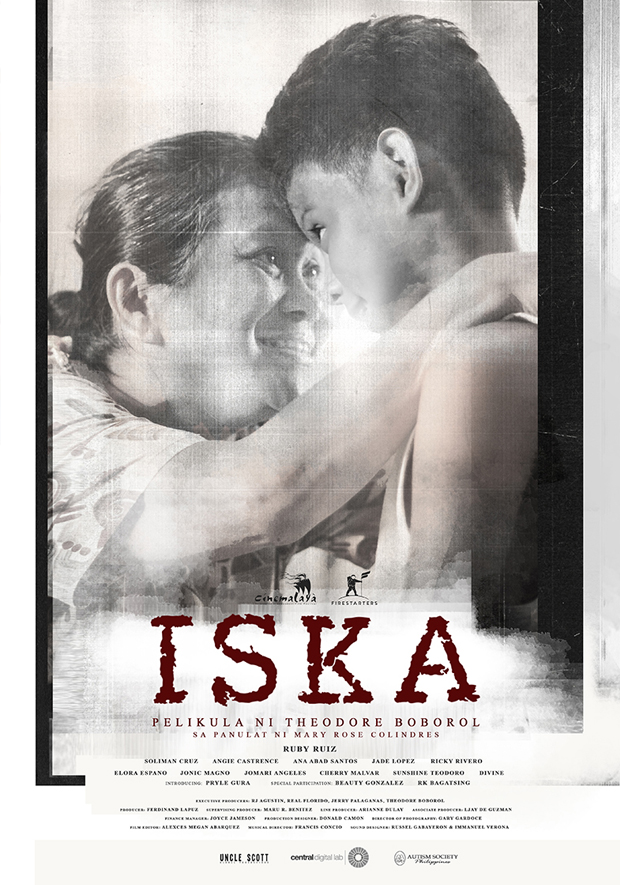
IN THE END
This is an okay film, particularly with its intention to supposedly highlight autism. But again because I chatted with Boborol, I am instead left with that feeling that this is his cathartic move than a film about Iska (and even about autism), and this bugs me. But if you are one willing to pay for someone’s therapy, or is you are one of those wanting to just see an attempt like this onscreen, then go watch it…




